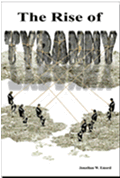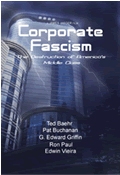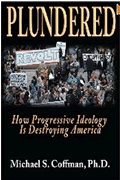U.S. CONSTITUTION: ARTICLE 5
By Mary E. Webster
August 16, 2014
NewsWithViews.com
It has been suggested that Article 5 of the U.S. Constitution may be a way to force political leaders to conform to constitutional limits. I have put Article 5 and The Federalist Papers' discussion of the Article below.
The first ten amendments to the Constitution were added for the same reasons that are proposed new amendment(s) now. They were added to "force" the federal government to stay within its limited powers. For instance, what is unclear about "Congress shall make no law respecting an establishment of religion, or prohibiting the free exercise thereof;..." (Amendment 1) or "... the right of the people to keep and bear Arms shall not be infringed" (Amendment 2) or "The powers not delegated to the United States by the Constitution, nor prohibited by it to the States, are reserved to the States respectively or to the people"? (Amendment 10)
Words on paper just don't have enough power to force political leaders to conform to the Constitution. If we, the people, don't elect leaders who respect their oath to support and defend the Constitution, including using the power of impeachment when it is appropriate, then the country is destined to follow the downward spiral of every other great historical civilization.
Excerpt from The United States Constitution: Annotated with The Federalist Papers in Modern English, pages 325-326.
Article 5. The Congress, whenever two-thirds of both Houses shall deem it necessary, shall propose Amendments to this Constitution, or, on the Application of the Legislatures of two thirds of the several States, shall call a Convention for proposing Amendments, which, in either Case, shall be valid to all Intents and Purposes, as Part of this Constitution, when ratified by the Legislatures of three-fourths of the several States, or by Conventions in three fourths thereof, as the one or the other Mode of Ratification may be proposed by the Congress; provided that no Amendment which may be made prior to the Year One thousand eight hundred and eight shall in any manner affect the first and fourth Clauses in the Ninth Section of the first Article; and that no State, without its Consent, shall be deprived of its equal Suffrage in the Senate.
Number
39 [15]
The Constitution’s amendment process is neither totally national
nor totally federal. If it was totally national, a majority
of the people of the Union could vote to ratify the Constitution. And
a majority of people could alter or abolish the Union’s government
at any time. On the other hand, if it were totally federal, every
State in the Union would have to agree to constitutional amendments. The
amendment process in the Constitution doesn’t follow either principle.
By requiring more than a majority of States, not citizens,
it has a federal character. By requiring less
than the total number of States agree, it is less federal and more national.
Number
43 [25-26]
Article Five says that three fourths of the States are needed to ratify
amendments with two exceptions only.
Experience will suggest how the Constitution should be altered. An extremely easy amendment process would make the Constitution too mutable. An extremely difficult process would preserve the faults discovered within it. Either the federal or the State governments can originate the amendment process. One exception, referring to equality in the Senate, is probably a safeguard to the remaining sovereignty of the States, which have equal representation in one branch of the legislature. The States that worried about equality probably insisted on it. The other exception must have been admitted on the same considerations that produced the privilege defended by it.
Number
85 [9-10, 12-13]
…one view of amendments hasn’t been discussed. I will discuss
it now.
The Constitution can be amended after it is ratified. This will be much easier than doing it before the ratification process is finished. Why do I say this? If the Constitution is altered before it is ratified, it immediately becomes a new constitution. And it must be ratified again in each State. All thirteen States would have to agree to the new constitution. However, if all the States ratify the Constitution, nine States can change it at any time. The chances are as thirteen to nine[*] in favor of an amendment after ratification over adoption of an entire governmental system.
Once the Constitution is established, each amendment would be brought forward separately. Compromises on other points would not be necessary. The will of the required number would decide the issue. Whenever ten States want an amendment, that amendment will become part of the Constitution...
Opponents argue that it may be impossible to amend the Constitution after it is ratified. They argue that the people administrating the national government will not want to give up any of their authority once they have it. When people carefully consider an amendment and decide that it should pass, I believe it will deal with the organization of the government, not to the extent of its powers. For this reason alone, people serving in the national government will not oppose it. Also, governing thirteen States will be difficult. I believe national rulers will need to fulfill the reasonable expectations of their constituents. But there is another consideration that proves the observation is wrong. It is this: the national rulers, whenever nine States concur, will have no option on the subject. By the fifth article of the Constitution, the Congress will be obliged “on the application of the legislatures of two thirds of the States (currently, nine), to call a convention for proposing amendments, which shall be valid, to all intents and purposes, as part of the Constitution, when ratified by the legislatures of three fourths of the States, or by conventions in three fourths thereof.”
|
|
The words of this article are peremptory. The Congress “shall call a convention.” Nothing is left to the discretion of Congress. Consequently, all the arguments about the disinclination to a change vanish. It may be difficult to unite two thirds or three fourths of the States in amendments that affect local interests. However, such a difficulty cannot be feared on issues that effect the general liberty or security of the people. The State legislatures will block encroachments by the national government.
[*] It is actually TEN. Two thirds may propose the measure, but three fourths must ratify.—PUBLIUS.
© 2014 Mary E. Webster - All Rights Reserved
Mary E Webster, a graduate of St. Paul College and the University of Iowa, started studying The Federalist Papers in 1994. Her books, including a 10th-grade reading level translation of the Papers, The Federalist Papers: Modern English Edition Two, and The U.S. Constitution: Annotated with The Federalist Papers in Modern English make the timeless arguments within the Papers available to everyone. Webster is related to Noah and Daniel Webster and a direct descendent of several signers of the Mayflower Compact.
Website: Mary.Webster.org
Email: marywebster00@gmail.com













 Share
This Article
Share
This Article






